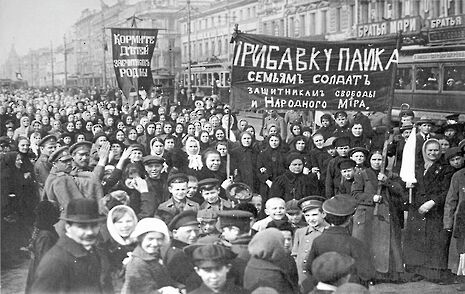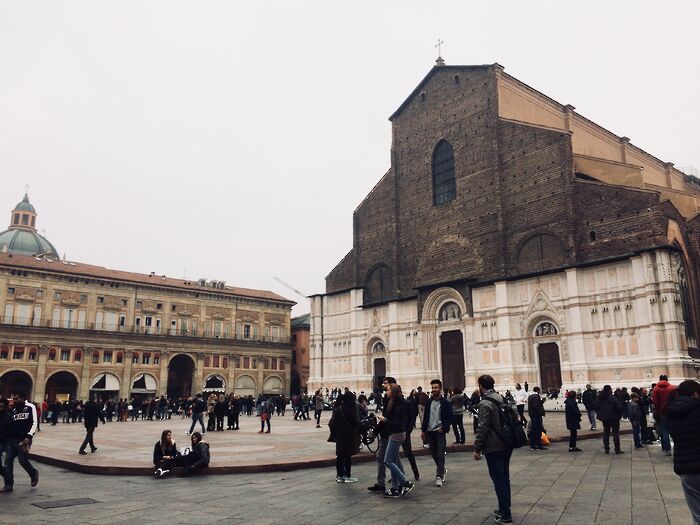Politics is rooted in the history of ideas
Theo Demolder explores the insights offered by the history of political thought and argues that our own representatives should be more alive to its lessons

Responding to the question of what they’re currently working on, HSPS students are used to being met with an envious “ah, that sounds so interesting!” That I am this week reading about how commercial empire on the seas was conceptualised in the early 17th century is perhaps less likely to get this reaction than something like US foreign policy, populism, race, or gender. All the same, I cannot think of a subject which matters more to understanding our world today than the history of political thought.
It is often said that to understand the present we must understand the past. But which parts of the past? Pretty much any point of view can be backed up by an historical example; but which parallels are true and which are false? Some of the more absurd claims just this year include, in Foreign Policy, that Martin Luther was the Donald Trump of 1517, and, in the Financial Times, that the Roman republic was brought down by fake news. Ideas, on the other hand, really do cut across time.
Concepts formed centuries ago, in contexts of which most of us have only the sketchiest of understandings, shape our modern politics. A recent example is ‘sovereignty’. Very simply, it means absolute power: where the final say lies. It cannot exist divided or pooled, any more than a person or parliament could. The very fact that we have the ability to withdraw from the EU shows that we have it. The fact that southern US states lost a civil war shows that they did not. Yet somehow this idea, from a 16th-century French jurist, has been adopted to mean in some sense ‘control’, in some sense ‘democracy’; in some sense, perhaps, something about our history, too.
“Understanding political ideas in their historical context is crucial”
This isn’t just a rather dry point about linguistic precision. It’s about how we make sense of modern politics at a time when that can seem far from easy. Tracing the ideas which guide us back through time exposes their nuances and their flaws. We may even discover valuable ways of thinking previously lost to us. The political thought of the past confronts us with difficult questions about our own views and values. What strikes me when talking to friends is not that their opinions have generally been pulled in one direction or the other; it’s that everyone now thinks that the question of what is right in politics is a lot more complicated than they did before.
Here, it’s the fact that it’s the history of political thought – and not just a nice exercise in abstract philosophising – which matters. Understanding political ideas in their historical context is crucial. Surprisingly, perhaps, it’s a relatively new idea – pioneered by a group of academics at this university in the 1960s, ‘the Cambridge school’. Thinkers from the past might inspire us, but wrenching them from their place in history as recruits to our cause is as ridiculous as the claims on both sides of the EU debate to know how Churchill, Thatcher and others would have voted.
Treating past thought as it should be treated teaches us about the very act of thinking about politics. For one thing, we see that shoddy, baseless arguments are nothing new; as I discovered last week, acclaimed statesman Edmund Burke had no shame in arguing that there would be no point freeing slaves because they were too fond of their masters to accept it. Even with the downright brilliant arguments, time and time again history shows us the messiness of politics getting in the way. We see that grand visions can never be neatly imposed onto the complexity of human experience. As the centenary of the Bolshevik revolution passes, we should remember the price paid when plans don’t work out – when theory doesn’t fit reality, and reality is blamed.
This whole history can seem frustrating. And if anything, it seems to be getting worse. One supervisor described the history of political thought since 1890 as a history of abject failure; and I can see that he had a point. But perhaps if we and our representatives were that bit more alive to these problems of thinking about politics, next time we could at least hope to fail better
 News / SU reluctantly registers controversial women’s soc18 December 2025
News / SU reluctantly registers controversial women’s soc18 December 2025 News / CUP announces funding scheme for under-represented academics19 December 2025
News / CUP announces funding scheme for under-represented academics19 December 2025 Features / Should I stay or should I go? Cambridge students and alumni reflect on how their memories stay with them15 December 2025
Features / Should I stay or should I go? Cambridge students and alumni reflect on how their memories stay with them15 December 2025 Fashion / The art of the formal outfit 18 December 2025
Fashion / The art of the formal outfit 18 December 2025 News / Dons warn PM about Vet School closure16 December 2025
News / Dons warn PM about Vet School closure16 December 2025









